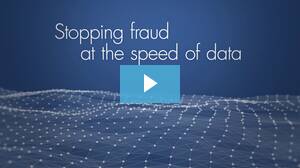Since the fallout of the Equifax breach, the chatter in the financial services industry has been all about identity fraud. The same sentiment was echoed in a recent study by Javelin.
According to that study, for the first year ever, data breaches compromised more Social Security Numbers than credit card numbers. SSNs accounted for 35 percent, while credit card numbers rang in at 30 percent in breaches. The reason for this shift was attributed to the Equifax breach.
As predicted, with fraudsters’ techniques getting smarter, they are adapting quickly to different types of fraud. The big concern in the financial world around identity theft is the ability to commit synthetic identity fraud.


















